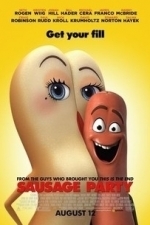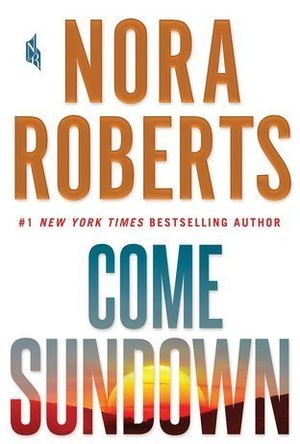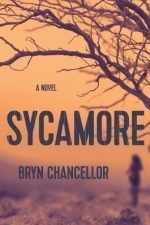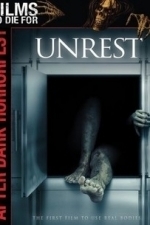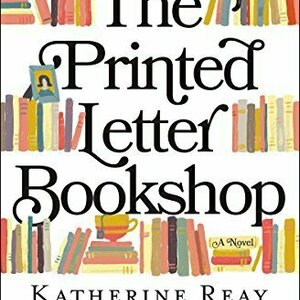Search
Search results

TechApp for Nissan
Catalogs and Reference
App
This application contains the technical characteristics of cars Nissan, and also the general and...
Movie Metropolis (309 KP) rated Sausage Party (2016) in Movies
Jun 11, 2019
Utterly Ridiculous
Just when Sharknado: the 4th Awakens made you think film-making couldn’t get any more ridiculous, a movie like Sausage Party comes along to remind you that Hollywood can always go that one step further to mind-boggling peculiarity.
Of course, that’s not always a bad thing, there have been countless weird and wacky films over the years that have gone on to become cult classics – look at Kick-Ass or even Pulp Fiction for examples of that. But for every Pulp Fiction there’s a Sharknado. So is Sausage Party good weird or as stale as a month-old bagel?
From the mind of Seth Rogen, Sausage Party is a strictly adults only animation that combines hugely offensive language and racial stereotypes with surprisingly meaningful religious undertones. And do you know what? It’s a breath of fresh air.
Life is good for all the food items that occupy the shelves at the local supermarket. Frank (Seth Rogen) the sausage, Brenda (Kristen Wiig) the hot dog bun, Teresa Taco and Sammy Bagel Jr. (Edward Norton) can’t wait to go home with a happy customer. Soon, their world comes crashing down as poor Frank learns the horrifying truth that he will eventually become a meal. After warning his pals about their similar fate, the panicked perishables devise a plan to escape from their human enemies.
Directors Conrad Vernon and Greg Tiernan take Rogen’s intriguing premise and inject a warmly familiar animation style, distancing itself just enough to make any comparisons simply inconceivable. Sausage Party is like nothing you will have ever seen.
The voice-acting is great too. Rogen plays his usual film staple – in sausage form – with the spicy Salma Hayek outdoing everyone else as a lustful taco. Kristen Wiig, Bill Hader, Michael Cera and Jonah Hill also lend their familiar voices to a hot-dog bun, a bottle of spirit and two other frankfurters respectively.
Elsewhere, the comedy, for the most part, hits the spot. As dreadful as it sounds, the racial stereotyping works incredibly well in food form. British tea, Mexican taco shells and German sauerkraut will have you rolling about the aisles with their outrageous vulgarity, but everyone needs to release their inner teenager once in a while.
Unfortunately, the films standout sequence has already been shown in the trailer – a side-splitting food-eye view of a normal kitchen, before every edible item is butchered; that poor Irish potato didn’t stand a chance. This is a real shame as the rest of the film doesn’t quite match up to the standard of that scene.
Nevertheless, there’ll be chuckles throughout as numerous celebrities are parodied in food form. One in particular, immortalised in chewing gum, is incredibly well thought out.
And that’s where Sausage Party succeeds the most. Underneath the polished animation and crude humour, this film is actually kind of clever. It tackles religion, war, race, sexuality and food waste very well indeed and that’s something the genre doesn’t ask for. It’s just unfortunate that it’s not quite as funny as the trailer would have you believe.
https://moviemetropolis.net/2016/09/03/utterly-ridiculous-sausage-party-review/
Of course, that’s not always a bad thing, there have been countless weird and wacky films over the years that have gone on to become cult classics – look at Kick-Ass or even Pulp Fiction for examples of that. But for every Pulp Fiction there’s a Sharknado. So is Sausage Party good weird or as stale as a month-old bagel?
From the mind of Seth Rogen, Sausage Party is a strictly adults only animation that combines hugely offensive language and racial stereotypes with surprisingly meaningful religious undertones. And do you know what? It’s a breath of fresh air.
Life is good for all the food items that occupy the shelves at the local supermarket. Frank (Seth Rogen) the sausage, Brenda (Kristen Wiig) the hot dog bun, Teresa Taco and Sammy Bagel Jr. (Edward Norton) can’t wait to go home with a happy customer. Soon, their world comes crashing down as poor Frank learns the horrifying truth that he will eventually become a meal. After warning his pals about their similar fate, the panicked perishables devise a plan to escape from their human enemies.
Directors Conrad Vernon and Greg Tiernan take Rogen’s intriguing premise and inject a warmly familiar animation style, distancing itself just enough to make any comparisons simply inconceivable. Sausage Party is like nothing you will have ever seen.
The voice-acting is great too. Rogen plays his usual film staple – in sausage form – with the spicy Salma Hayek outdoing everyone else as a lustful taco. Kristen Wiig, Bill Hader, Michael Cera and Jonah Hill also lend their familiar voices to a hot-dog bun, a bottle of spirit and two other frankfurters respectively.
Elsewhere, the comedy, for the most part, hits the spot. As dreadful as it sounds, the racial stereotyping works incredibly well in food form. British tea, Mexican taco shells and German sauerkraut will have you rolling about the aisles with their outrageous vulgarity, but everyone needs to release their inner teenager once in a while.
Unfortunately, the films standout sequence has already been shown in the trailer – a side-splitting food-eye view of a normal kitchen, before every edible item is butchered; that poor Irish potato didn’t stand a chance. This is a real shame as the rest of the film doesn’t quite match up to the standard of that scene.
Nevertheless, there’ll be chuckles throughout as numerous celebrities are parodied in food form. One in particular, immortalised in chewing gum, is incredibly well thought out.
And that’s where Sausage Party succeeds the most. Underneath the polished animation and crude humour, this film is actually kind of clever. It tackles religion, war, race, sexuality and food waste very well indeed and that’s something the genre doesn’t ask for. It’s just unfortunate that it’s not quite as funny as the trailer would have you believe.
https://moviemetropolis.net/2016/09/03/utterly-ridiculous-sausage-party-review/
Movie Metropolis (309 KP) rated Krampus (2015) in Movies
Jun 11, 2019
Full of festive chills and thrills
It’s the most wonderful time of the year, or in the case of one typical US family, it’s not, as they face off against a whole host of festive monsters and ghouls, all serving their evil overlord, Krampus.
This horror comedy takes the genre to a whole new level, throwing in a nice dose of cheesy festive calamity for good measure. But will you be wishing for it on this year’s Christmas list?
Krampus follows the story of a family, who after getting together for the holiday; forget the spirit of Christmas and what it means to hope for a better future and for the well-being of those around you.
Unfortunately, there aren’t any visits from Santa on the cards for this unlucky group, as their continuous bickering summons Krampus, St. Nicholas’ shadow. Krampus is a popular piece of German folklore, a hooded anthropomorphic figure who punishes naughty children in the run up to Christmas.
Naturally, the legend of Krampus gets an American makeover but surprisingly the end result is one of the best horror comedy films in years with some well-time scares and just the right amount of laughs. The family, known only by their first names, is a well-acted group featuring talent like Toni Collette, Adam Scott and the ever-popular David Koechner.
The family unit has just the right amount of chemistry to make their relationships feel believable with Krista Stadler providing an eerie performance as the film’s eldest character.
What sets Krampus apart from its peers is the ingenious plot and fascinating story, with one particular scene featuring some crazed gingerbread men and demonic toys proving to be the film’s highlight. The constant shifts in tone ensure it never settles into a rut, and unusually for the genre, Krampus manages to steamroll itself to a genuinely pleasing climax that’ll have you talking long after you’ve walked out of the cinema.
There’s also a beautifully animated backstory explaining the origins of our antagonist that just proves how above average this film truly is. Only Harry Potter & the Deathly Hallows: Part 1 managed to do such a tasteful cut to animation and it works fantastically well here too.
The titular character is a menacing figure in a long cloak, with dangling chains and large hooves, and despite his lack of screen time, he makes his presence felt. There’ll be no chance of bickering around the Christmas dinner table if there’s the possibility of Krampus showing up.
If there’s one criticism to be directed towards Krampus, it’s the lack of actual horror. Yes, there are scares but the majority of them are of the jump variety and there’s only so much terror that can be inflicted by maniacal biscuits.
Overall, Krampus is a highly entertaining romp with one of the best endings ever seen in the horror comedy genre. This frighteningly funny festive treat should most definitely be on your must watch list – it’s a delight.
Just remember, he knows when you’ve been bad or good, so be good for goodness sake! Krampus is coming to town.
https://moviemetropolis.net/2015/12/06/full-of-festive-thrills-and-chills-krampus-review/
This horror comedy takes the genre to a whole new level, throwing in a nice dose of cheesy festive calamity for good measure. But will you be wishing for it on this year’s Christmas list?
Krampus follows the story of a family, who after getting together for the holiday; forget the spirit of Christmas and what it means to hope for a better future and for the well-being of those around you.
Unfortunately, there aren’t any visits from Santa on the cards for this unlucky group, as their continuous bickering summons Krampus, St. Nicholas’ shadow. Krampus is a popular piece of German folklore, a hooded anthropomorphic figure who punishes naughty children in the run up to Christmas.
Naturally, the legend of Krampus gets an American makeover but surprisingly the end result is one of the best horror comedy films in years with some well-time scares and just the right amount of laughs. The family, known only by their first names, is a well-acted group featuring talent like Toni Collette, Adam Scott and the ever-popular David Koechner.
The family unit has just the right amount of chemistry to make their relationships feel believable with Krista Stadler providing an eerie performance as the film’s eldest character.
What sets Krampus apart from its peers is the ingenious plot and fascinating story, with one particular scene featuring some crazed gingerbread men and demonic toys proving to be the film’s highlight. The constant shifts in tone ensure it never settles into a rut, and unusually for the genre, Krampus manages to steamroll itself to a genuinely pleasing climax that’ll have you talking long after you’ve walked out of the cinema.
There’s also a beautifully animated backstory explaining the origins of our antagonist that just proves how above average this film truly is. Only Harry Potter & the Deathly Hallows: Part 1 managed to do such a tasteful cut to animation and it works fantastically well here too.
The titular character is a menacing figure in a long cloak, with dangling chains and large hooves, and despite his lack of screen time, he makes his presence felt. There’ll be no chance of bickering around the Christmas dinner table if there’s the possibility of Krampus showing up.
If there’s one criticism to be directed towards Krampus, it’s the lack of actual horror. Yes, there are scares but the majority of them are of the jump variety and there’s only so much terror that can be inflicted by maniacal biscuits.
Overall, Krampus is a highly entertaining romp with one of the best endings ever seen in the horror comedy genre. This frighteningly funny festive treat should most definitely be on your must watch list – it’s a delight.
Just remember, he knows when you’ve been bad or good, so be good for goodness sake! Krampus is coming to town.
https://moviemetropolis.net/2015/12/06/full-of-festive-thrills-and-chills-krampus-review/
Jade Clarke-Mackintosh (7 KP) rated Come Sundown in Books
Jan 22, 2018
Brilliant but a harrowing read!
I am a big fan of Nora Roberts, and this book undoubtedly shows just why she has become such a top seller. Romantic suspense or crime thrillers aren't usually my thing but this author has a way of dragging me, and I know whatever I read will be worth it.
This book was very hard to read in places and extremely dark, some of the subject matters were hard hitting and I had to put the book down and walk away for a for a while. I am surprised it didn't come with a bit more of a warning to readers.
The story centres around the Bodine family who have a ranch resort in Montana. Like all her books it is based on family values and the healing powers of friendships formed. The story centres around Bodine Longbow manager of the resort side, which her family have had for generations. Due to circumstances out of her control she is in need of a horseman, and it just so happens here brothers best friend is back in town after a stint in Hollywood with his show horse Sundown. She has had a crush on him since they were at school and it is very sweet to watch the romance blossom between the two.
Alongside of this in true Nora style, there is another darker, more sinister story developing. One member of the Bodine family Alice, has be gone for years, expected of being a run away and giving up on the family as she was always strong willed and somewhat of a free spirit, was actually kidnapped whilst making her way home and has been in confinement in a room for years, being brutally beaten and raped repeatedly by a religious nut, who believes women are for bearing children and doing as their husbands tell them. Most of these scenes reduced me to tears.
<i>“He told her she was his property now. Though she’d clearly been a whore before he’d saved her on the side of the road, she was his responsibility now. And his to do with as he pleased.
He suggested she read the Bible, as it was written a woman was to be under a man’s dominance, how God had created woman from Adam’s rib to serve as his helpmate and to bear his children.”</i>
These scenes and many like them, within the book are very graphic, and there are a lot of triggers. As mentioned earlier in my review I had to put the book down and go do other things to get my mind off what was happening. Time and time again Nora shows how the love of family and friends can mend almost anything.
There are lots of parallel story lines running throughout the book, which all come together towards the end, making the darker parts more bearable. Another brilliant book by the author, the only reason I didn't give it five stars is because of how much I struggled with parts of the brutality and abuse.
This book was very hard to read in places and extremely dark, some of the subject matters were hard hitting and I had to put the book down and walk away for a for a while. I am surprised it didn't come with a bit more of a warning to readers.
The story centres around the Bodine family who have a ranch resort in Montana. Like all her books it is based on family values and the healing powers of friendships formed. The story centres around Bodine Longbow manager of the resort side, which her family have had for generations. Due to circumstances out of her control she is in need of a horseman, and it just so happens here brothers best friend is back in town after a stint in Hollywood with his show horse Sundown. She has had a crush on him since they were at school and it is very sweet to watch the romance blossom between the two.
Alongside of this in true Nora style, there is another darker, more sinister story developing. One member of the Bodine family Alice, has be gone for years, expected of being a run away and giving up on the family as she was always strong willed and somewhat of a free spirit, was actually kidnapped whilst making her way home and has been in confinement in a room for years, being brutally beaten and raped repeatedly by a religious nut, who believes women are for bearing children and doing as their husbands tell them. Most of these scenes reduced me to tears.
<i>“He told her she was his property now. Though she’d clearly been a whore before he’d saved her on the side of the road, she was his responsibility now. And his to do with as he pleased.
He suggested she read the Bible, as it was written a woman was to be under a man’s dominance, how God had created woman from Adam’s rib to serve as his helpmate and to bear his children.”</i>
These scenes and many like them, within the book are very graphic, and there are a lot of triggers. As mentioned earlier in my review I had to put the book down and go do other things to get my mind off what was happening. Time and time again Nora shows how the love of family and friends can mend almost anything.
There are lots of parallel story lines running throughout the book, which all come together towards the end, making the darker parts more bearable. Another brilliant book by the author, the only reason I didn't give it five stars is because of how much I struggled with parts of the brutality and abuse.
Jess Winters and her mother, Maud, arrive in the small town of Sycamore, Arizona hoping to start afresh: Maud is recently divorced from Jess' father and both are reeling from the event in different ways. Maud copes by sleeping most of the day away, but a restless teenage Jess wanders the town, searching for peace. Eventually she finds a friendship with Dani Newell, the local "smart kid" at the high school, and her boyfriend, Paul, the son of Jess' employer, Iris. Maybe, just maybe, Jess thinks, she could be happy here.
Flash forward nearly twenty years, when a new resident to town, another restless spirit, stumbles upon some bones in the local dried up lake. Residents immediately fear they belong to Jess, who disappeared shortly before Christmas: a young seventeen-year-old who was never seen again.
<i>Oh, this is a magical book.</I> I felt an immediate attachment to Jess from the first opening chapter. I was connected to her as a child of divorce, as someone who once had that urge to wander, who shared that restlessness as an adolescent. You quickly find that Chancellor has the power to create such real characters, who draw you in from the start.
The book--and the story of Jess--unfolds in snatches and snippets of these characters. Each chapter is told by a different inhabitant of Sycamore, and we get reminiscences and memories of their past, telling more about what happened with Jess, as well as their current life. We also get chapters of Jess' time as a sixteen-and seventeen-year-old in the town. In a way, it is as if we are being caught up backwards sometimes. I was captivated by the oddly suspenseful way they each tell stories from different times and varying viewpoints. It's an interesting (and effective) technique. You are piecing together a mystery, yet also reading a beautiful novel of interwoven characters.
One of the most amazing things about this novel is that for each different point of view, for each character, they have their own voice. Chancellor captures each one in their own unique way: the different way they speak. Some chapters are told in a distinctive sort of format and more. Every one has their own personality. It allows the characters--and the entire town--to really come to life so easily as you read. You can picture this entire small town and its inhabitants so clearly because of her beautiful, clear writing. It's just such a powerful book and so well-written.
There's a sweet tenderness to this book that I cannot truly describe. It really touched me. It's not always an easy read, or a happy one, but it's a lovely book in many ways. It's wonderfully written, surprisingly suspenseful, and a heartbreaking but amazing journey. I highly recommend it. 4.5 stars.
I received a copy of this novel from the publisher and Edelweiss (thank you!) in return for an unbiased review; it is available everywhere as of 05/09/2017.
<center><a href="http://justacatandabookatherside.blogspot.com/">Blog</a>; ~ <a href="https://twitter.com/mwcmoto">Twitter</a>; ~ <a href="https://www.facebook.com/justacatandabook/">Facebook</a>; ~ <a href="https://plus.google.com/u/0/+KristyHamiltonbooks">Google+</a></center>;
Flash forward nearly twenty years, when a new resident to town, another restless spirit, stumbles upon some bones in the local dried up lake. Residents immediately fear they belong to Jess, who disappeared shortly before Christmas: a young seventeen-year-old who was never seen again.
<i>Oh, this is a magical book.</I> I felt an immediate attachment to Jess from the first opening chapter. I was connected to her as a child of divorce, as someone who once had that urge to wander, who shared that restlessness as an adolescent. You quickly find that Chancellor has the power to create such real characters, who draw you in from the start.
The book--and the story of Jess--unfolds in snatches and snippets of these characters. Each chapter is told by a different inhabitant of Sycamore, and we get reminiscences and memories of their past, telling more about what happened with Jess, as well as their current life. We also get chapters of Jess' time as a sixteen-and seventeen-year-old in the town. In a way, it is as if we are being caught up backwards sometimes. I was captivated by the oddly suspenseful way they each tell stories from different times and varying viewpoints. It's an interesting (and effective) technique. You are piecing together a mystery, yet also reading a beautiful novel of interwoven characters.
One of the most amazing things about this novel is that for each different point of view, for each character, they have their own voice. Chancellor captures each one in their own unique way: the different way they speak. Some chapters are told in a distinctive sort of format and more. Every one has their own personality. It allows the characters--and the entire town--to really come to life so easily as you read. You can picture this entire small town and its inhabitants so clearly because of her beautiful, clear writing. It's just such a powerful book and so well-written.
There's a sweet tenderness to this book that I cannot truly describe. It really touched me. It's not always an easy read, or a happy one, but it's a lovely book in many ways. It's wonderfully written, surprisingly suspenseful, and a heartbreaking but amazing journey. I highly recommend it. 4.5 stars.
I received a copy of this novel from the publisher and Edelweiss (thank you!) in return for an unbiased review; it is available everywhere as of 05/09/2017.
<center><a href="http://justacatandabookatherside.blogspot.com/">Blog</a>; ~ <a href="https://twitter.com/mwcmoto">Twitter</a>; ~ <a href="https://www.facebook.com/justacatandabook/">Facebook</a>; ~ <a href="https://plus.google.com/u/0/+KristyHamiltonbooks">Google+</a></center>;
Kristy H (1252 KP) rated Always and Forever, Lara Jean in Books
Feb 1, 2018
In the final book of Jenny Han's "To All the Boys I've Loved Before" series, we find our heroine, Lara Jean, in her senior year of high school and facing some big changes: college choices; her dad's impending marriage (yay, Mrs. Rothschild!); and figuring out the fate of her relationship with her handsome high school sweetheart, Peter K. The plan, of course, is for Lara Jean and Peter to head to UVA together. Peter already has a lacrosse scholarship there, and Lara Jean's acceptance email should be arriving any day. Still, Lara Jean is worried about the possibility of change and if things do not go exactly according to her plans.
I can't remember how I stumbled across this series, beloved to me (a mid-thirties lesbian) and teen girls everywhere, but I do have such a soft spot for Lara Jean. My girl is all grown up now! *sniff sniff* I love this series even more because it's basically set in my hometown, and I get to read about references to Bodo's Bagels, UVA and the Rotunda, BBQ Exchange, and more.
The strength of Han's series certainly centers around Lara Jean. She's such a realistic and endearing character, and she's grown and progressed over the three books. I adore her spirit, her love of baking, and her fierce devotion to her family. Indeed, Lara Jean's family is very well fleshed out, and you can so easily visualize each of her sisters and their poor, beleaguered father. Everyone--even our additional supporting characters--feels like family by now.
The hardest part of this book was that it felt a bit like filler. Don't get me wrong, I'm glad Han wrote a third book, and I'm happy to see what happened to Lara Jean, Peter, and the rest of the gang, but it sort of feel like we were killing time for the sake of killing time. There's no major plot impetus beyond college decisions and Mr. Covey's wedding preparations. It ties back to a thread in the first book involving Lara Jean's mom warning about not going to college with a boyfriend (remember Margot and Josh?), but it's a tenuous thread.
Still, this is a sweet book, and I enjoyed most of it, though Peter didn't always seem like his usual self. (I don't enjoy when "stress" is an excuse for guys to treat girls poorly.) I was glad to see Lara Jean stay true to her Lara Jean self: she's just so fun, spunky, and adorable. Han says definitively at the end that she won't write anymore about Lara Jean and even though I felt like this book was a little bit of fluff, I still felt sad reading that, because darnit, it was Lara Jean fluff, and I love her.
You can find my review of the first book <a href="https://www.goodreads.com/review/show/1521015379?book_show_action=false&from_review_page=1">here</a>; and the second <a href="https://www.goodreads.com/review/show/1521018057?book_show_action=false&from_review_page=1">here</a>;.
<center><a href="http://justacatandabookatherside.blogspot.com/">Blog</a>; ~ <a href="https://twitter.com/mwcmoto">Twitter</a>; ~ <a href="https://www.facebook.com/justacatandabook/">Facebook</a>; ~ <a href="https://plus.google.com/u/0/+KristyHamiltonbooks">Google+</a></center>;
I can't remember how I stumbled across this series, beloved to me (a mid-thirties lesbian) and teen girls everywhere, but I do have such a soft spot for Lara Jean. My girl is all grown up now! *sniff sniff* I love this series even more because it's basically set in my hometown, and I get to read about references to Bodo's Bagels, UVA and the Rotunda, BBQ Exchange, and more.
The strength of Han's series certainly centers around Lara Jean. She's such a realistic and endearing character, and she's grown and progressed over the three books. I adore her spirit, her love of baking, and her fierce devotion to her family. Indeed, Lara Jean's family is very well fleshed out, and you can so easily visualize each of her sisters and their poor, beleaguered father. Everyone--even our additional supporting characters--feels like family by now.
The hardest part of this book was that it felt a bit like filler. Don't get me wrong, I'm glad Han wrote a third book, and I'm happy to see what happened to Lara Jean, Peter, and the rest of the gang, but it sort of feel like we were killing time for the sake of killing time. There's no major plot impetus beyond college decisions and Mr. Covey's wedding preparations. It ties back to a thread in the first book involving Lara Jean's mom warning about not going to college with a boyfriend (remember Margot and Josh?), but it's a tenuous thread.
Still, this is a sweet book, and I enjoyed most of it, though Peter didn't always seem like his usual self. (I don't enjoy when "stress" is an excuse for guys to treat girls poorly.) I was glad to see Lara Jean stay true to her Lara Jean self: she's just so fun, spunky, and adorable. Han says definitively at the end that she won't write anymore about Lara Jean and even though I felt like this book was a little bit of fluff, I still felt sad reading that, because darnit, it was Lara Jean fluff, and I love her.
You can find my review of the first book <a href="https://www.goodreads.com/review/show/1521015379?book_show_action=false&from_review_page=1">here</a>; and the second <a href="https://www.goodreads.com/review/show/1521018057?book_show_action=false&from_review_page=1">here</a>;.
<center><a href="http://justacatandabookatherside.blogspot.com/">Blog</a>; ~ <a href="https://twitter.com/mwcmoto">Twitter</a>; ~ <a href="https://www.facebook.com/justacatandabook/">Facebook</a>; ~ <a href="https://plus.google.com/u/0/+KristyHamiltonbooks">Google+</a></center>;
Heather Cranmer (2721 KP) rated Amity & Sorrow in Books
Jun 7, 2018
(This review can be found on my blog <a href="http://themisadventuresofatwentysomething.blogspot.com/">The (Mis)Adventures of a Twenty-Something Year Old Girl</a>).
So when I read the blurb about this book, it definitely interested me. I find these kind of cults interesting. Amity & Sorrow: A Novel by Peggy Riley is such a good read when it comes to religious cults and just a great read in general.
Amaranth is on the run from her polygamous, cult leader husband. She's also brought her two children, Amity and Sorrow, with her. When she crashes her car in Oklahoma, she doesn't plan on staying. However, after spending time with Bradley, she wants to stay. Sorrow, her eldest child, wants to go back to her father. Amity just wants to make her sister happy. Sorrow will do anything she can to get back to the compound and her father. Will Amaranth stay with Bradley or will she miss the compound's ways?
The title is pretty straight forward. Amity and Sorrow are the names of the children in this book. I kind of like the title although I think it's not very original.
The cover is simplistic. I was a bit confused though when I started reading the book because the two girls look like adults judging by what their bodies look like. Amity is supposed to be 12 years old, and although Sorrow's age is never revealed, she is referred to as a child. I think the cover would've suited this book better had it looked like a pre-teen and a teenage girl holding hands.
The setting and world building were done beautifully. Everything was written the way I'd think a polygamous cult would be and the how the people in it would act. Riley's portrayal of a woman who escaped from a religious cut is fantastic!
I can not fault the pacing in this book. Not once was I bored when reading Amity & Sorrow: A Novel. Every chapter ending left me wanting more. Every page came alive in my mind for me.
The characters were very well developed and well written. I enjoyed reading about Amity. I loved her innocence and the way she was protective of her sister. I couldn't stand Sorrow, not because she wasn't written well but because I just found her to be so much of a spoiled brat. Amaranth was a great character, and I thought she was a great mother to her children.
Like the pacing, the dialogue is fantastic. The children who were raised in the religious cult speak the way I'd imagine them too. The dialogue between the characters is very interesting. There's no real swear words although there are sexual references.
Amity & Sorrow: A Novel by Peggy Riley is a fantastic read that will leave its readers thinking about it long after they've finished the ending. It is a touching story about love, survival, and the human spirit.
I'd recommend this book to everyone aged 16+ due to sexual references and adult themes.
(I received this book for free from the Goodreads Firstreads program).
So when I read the blurb about this book, it definitely interested me. I find these kind of cults interesting. Amity & Sorrow: A Novel by Peggy Riley is such a good read when it comes to religious cults and just a great read in general.
Amaranth is on the run from her polygamous, cult leader husband. She's also brought her two children, Amity and Sorrow, with her. When she crashes her car in Oklahoma, she doesn't plan on staying. However, after spending time with Bradley, she wants to stay. Sorrow, her eldest child, wants to go back to her father. Amity just wants to make her sister happy. Sorrow will do anything she can to get back to the compound and her father. Will Amaranth stay with Bradley or will she miss the compound's ways?
The title is pretty straight forward. Amity and Sorrow are the names of the children in this book. I kind of like the title although I think it's not very original.
The cover is simplistic. I was a bit confused though when I started reading the book because the two girls look like adults judging by what their bodies look like. Amity is supposed to be 12 years old, and although Sorrow's age is never revealed, she is referred to as a child. I think the cover would've suited this book better had it looked like a pre-teen and a teenage girl holding hands.
The setting and world building were done beautifully. Everything was written the way I'd think a polygamous cult would be and the how the people in it would act. Riley's portrayal of a woman who escaped from a religious cut is fantastic!
I can not fault the pacing in this book. Not once was I bored when reading Amity & Sorrow: A Novel. Every chapter ending left me wanting more. Every page came alive in my mind for me.
The characters were very well developed and well written. I enjoyed reading about Amity. I loved her innocence and the way she was protective of her sister. I couldn't stand Sorrow, not because she wasn't written well but because I just found her to be so much of a spoiled brat. Amaranth was a great character, and I thought she was a great mother to her children.
Like the pacing, the dialogue is fantastic. The children who were raised in the religious cult speak the way I'd imagine them too. The dialogue between the characters is very interesting. There's no real swear words although there are sexual references.
Amity & Sorrow: A Novel by Peggy Riley is a fantastic read that will leave its readers thinking about it long after they've finished the ending. It is a touching story about love, survival, and the human spirit.
I'd recommend this book to everyone aged 16+ due to sexual references and adult themes.
(I received this book for free from the Goodreads Firstreads program).
Gareth von Kallenbach (980 KP) rated Unrest (2006) in Movies
Aug 14, 2019
For many medical school students the most daunting class they face early in their studies is that of Gross Anatomy. The class which introduces aspiring doctors to their first bodies, as well as the reality and complexity of the human anatomy is often seen as a make or break moment for the challenging studies that lay ahead.
In the film Unrest Writer/Director/Producer Jason Todd Ipson follows a group of new students in a Gross Anatomy class. At first the students are shocked by the disfigured cadaver in front of them, but soon begin the dissection they are required to do.
The appearance of the corpse they are working on becomes a source of fixation for one of the students named Allison (Corri English), who becomes convinced that something is not right with the body they are working on, as something tells her that things are not as they seem.
Allison’s concerns are dismissed as her being overwhelmed by her first encounter with a body, and she is told that her concerns will soon pass. Soon after, one of the dissection group is affected by a freak accident, and Allison becomes convinced that there are evil forces at work, and that nobody will be safe until the mystery behind the corpse is settled.
As the body count rises, Allison and her friend Brian (Scot Davis), face a race against the clock and the supernatural to find the cause of the unrest and make things right, before they end up the next victims of a vengeful specter.
Unrest is a very impressive debut for Ipson, who himself was a promising surgeon before turning his talents to directing. The film is well paced and has plenty of tension and suspense without resorting to the clichéd horror staples that have become all too common.
The plot is refreshingly original and deeper than most films in this genre attempt to achieve, as its complexity is deceiving simply. The film can be taken as a simple scare fest, but for those willing to look beneath the surface, there are deeper layers to the film that tackle areas such as the afterlife, intuition, possession, second sight, and the supernatural. While all of those have been covered before in various films, few have ever combined them in such an intelligent fashion that allows the audience to reach their own conclusions on the topics the film introduces.
The cast is solid especially Davis and English who take what could easily be stock characters and infuse a sense of purpose which helps the audience relate to them and their situation.
While the film might have what appears to some to be plot holes, the film is actually a clever examination of the spirit and afterlife, and delivers the goods. While much has been made about the alleged use of real body parts in the film, Ipson is careful not to let his film become a gratuitous gore fest and uses blood and carnage only in the amounts necessary to propel the story.
Unrest is a very solid effort that marks the emergence of a talent to be watched and will delight fans of the genre who want some intelligence with their horror.
In the film Unrest Writer/Director/Producer Jason Todd Ipson follows a group of new students in a Gross Anatomy class. At first the students are shocked by the disfigured cadaver in front of them, but soon begin the dissection they are required to do.
The appearance of the corpse they are working on becomes a source of fixation for one of the students named Allison (Corri English), who becomes convinced that something is not right with the body they are working on, as something tells her that things are not as they seem.
Allison’s concerns are dismissed as her being overwhelmed by her first encounter with a body, and she is told that her concerns will soon pass. Soon after, one of the dissection group is affected by a freak accident, and Allison becomes convinced that there are evil forces at work, and that nobody will be safe until the mystery behind the corpse is settled.
As the body count rises, Allison and her friend Brian (Scot Davis), face a race against the clock and the supernatural to find the cause of the unrest and make things right, before they end up the next victims of a vengeful specter.
Unrest is a very impressive debut for Ipson, who himself was a promising surgeon before turning his talents to directing. The film is well paced and has plenty of tension and suspense without resorting to the clichéd horror staples that have become all too common.
The plot is refreshingly original and deeper than most films in this genre attempt to achieve, as its complexity is deceiving simply. The film can be taken as a simple scare fest, but for those willing to look beneath the surface, there are deeper layers to the film that tackle areas such as the afterlife, intuition, possession, second sight, and the supernatural. While all of those have been covered before in various films, few have ever combined them in such an intelligent fashion that allows the audience to reach their own conclusions on the topics the film introduces.
The cast is solid especially Davis and English who take what could easily be stock characters and infuse a sense of purpose which helps the audience relate to them and their situation.
While the film might have what appears to some to be plot holes, the film is actually a clever examination of the spirit and afterlife, and delivers the goods. While much has been made about the alleged use of real body parts in the film, Ipson is careful not to let his film become a gratuitous gore fest and uses blood and carnage only in the amounts necessary to propel the story.
Unrest is a very solid effort that marks the emergence of a talent to be watched and will delight fans of the genre who want some intelligence with their horror.
MaryAnn (14 KP) rated The Printed Letter Bookshop in Books
Nov 4, 2019
Amid literature and lattes, three women come together and find that sharing ones journey with best friends makes life richer.
When attorney Madeline Carter inherits her aunts bookstore in a small town north of Chicago, she plans to sell it and add the proceeds to her nonexistent investment portfolio. But plans change when Madeline discovers the store isnt making money and she gets passed over for promotion at her firm. She quits in protest, takes the train north, and decides to work at the store to prep it for sale. Madeline soon finds herself at odds with employees Jessica and Courtney; when she also finds herself attracted to an affianced man, it only confuses the entire situation. After blowing up her marriage two years earlier, Janet has found solace working at the bookstore and a kindred spirit within its owner, Maddie Cullen. But when Maddie dies and her niece, Madeline, barges in like a bulldozer, Janet pushes at the new owner in every way-until she trips over common ground. Soon the women are delving into online dating and fashion makeovers, and Janet feels the pull to rediscover her art, a love she thought long behind her. After a night of bad decisions leaves the store in peril, Claire arrives and tries to save the day. While she, too, found sanctuary in the little bookstore, she knows its under-insured, in the red, and will never survive. When she discovers her teenage daughter has played a part in vandalizing the store, Courtney taps into strength she didnt know existed or had long forgotten. The quietest of the three, she steps up and finds a way to save her family, the store, and the precious friendships that have grown within it. The Printed Letter Bookshop is the story of friends who find each other-and themselves-in a place none of them ever expected.
This is a wonderful read. It's hard to put down once the reader begins the story. One shop, three women and their lives are connected through one woman, Aunt Maddie. In this story, we learn through three women how one magnificent woman helps each woman, Madeline, Janet, and Claire take a look into their lives through books that she has left them to read after her death.
I love bookstores, and this one is more than a bookstore; it's a place where friends come together for love, help, and healing. It's about friendships that can last through trials and tribulations. It's about one woman's legacy and how she looked at life. It's a story that one should not miss.
This is a story of finding one's calling in life, of love, forgiveness and true friendships that last through trials and tribulations, not just in the good times but in the worst of days. This was a wonderful book that teaches us that reading is beneficial, soothing and can always be a learning experience.
I loved the shop; I wish it were real if it were I would visit everyday!
When attorney Madeline Carter inherits her aunts bookstore in a small town north of Chicago, she plans to sell it and add the proceeds to her nonexistent investment portfolio. But plans change when Madeline discovers the store isnt making money and she gets passed over for promotion at her firm. She quits in protest, takes the train north, and decides to work at the store to prep it for sale. Madeline soon finds herself at odds with employees Jessica and Courtney; when she also finds herself attracted to an affianced man, it only confuses the entire situation. After blowing up her marriage two years earlier, Janet has found solace working at the bookstore and a kindred spirit within its owner, Maddie Cullen. But when Maddie dies and her niece, Madeline, barges in like a bulldozer, Janet pushes at the new owner in every way-until she trips over common ground. Soon the women are delving into online dating and fashion makeovers, and Janet feels the pull to rediscover her art, a love she thought long behind her. After a night of bad decisions leaves the store in peril, Claire arrives and tries to save the day. While she, too, found sanctuary in the little bookstore, she knows its under-insured, in the red, and will never survive. When she discovers her teenage daughter has played a part in vandalizing the store, Courtney taps into strength she didnt know existed or had long forgotten. The quietest of the three, she steps up and finds a way to save her family, the store, and the precious friendships that have grown within it. The Printed Letter Bookshop is the story of friends who find each other-and themselves-in a place none of them ever expected.
This is a wonderful read. It's hard to put down once the reader begins the story. One shop, three women and their lives are connected through one woman, Aunt Maddie. In this story, we learn through three women how one magnificent woman helps each woman, Madeline, Janet, and Claire take a look into their lives through books that she has left them to read after her death.
I love bookstores, and this one is more than a bookstore; it's a place where friends come together for love, help, and healing. It's about friendships that can last through trials and tribulations. It's about one woman's legacy and how she looked at life. It's a story that one should not miss.
This is a story of finding one's calling in life, of love, forgiveness and true friendships that last through trials and tribulations, not just in the good times but in the worst of days. This was a wonderful book that teaches us that reading is beneficial, soothing and can always be a learning experience.
I loved the shop; I wish it were real if it were I would visit everyday!

